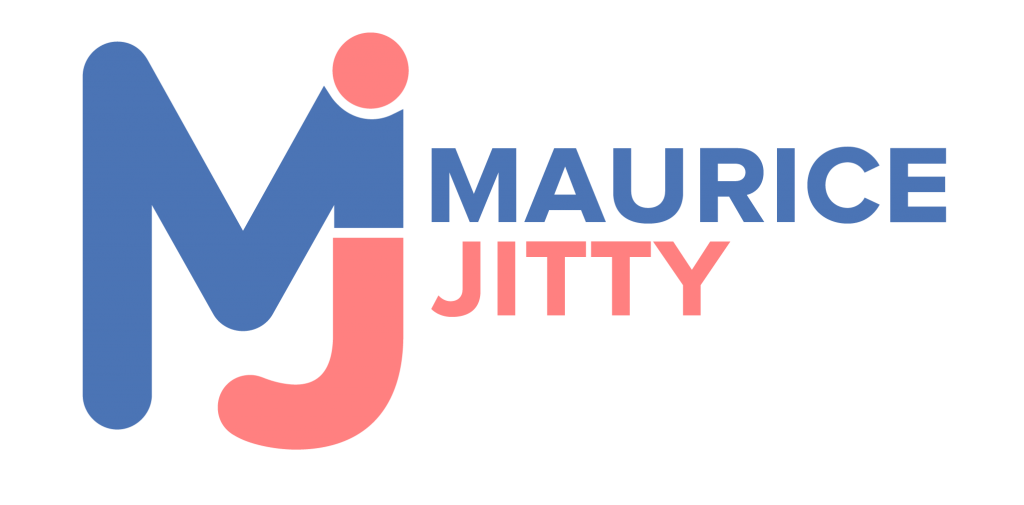In this new normal, when news organizations publish stories about how the pandemic led to the rise of the inflation and unemployment rate, I consider this a slow news day. This scenario is inevitable, and I silently tell myself every time business forces to close its doors because of the lack of demand for their services.
As Jollibee announced that it would shut down hundreds of its locations, I understand. Even the giants are struggling this time.
We hate to admit that we’re numb about these situations, but we should care even though it’s not directly affecting us. When these big-time enterprises end their regimes, it could significantly affect the general well-being of the population.
It starts with massive numbers of unemployed citizens, then and then hunger, especially from the people in the lower class. Crime statistics would begin to spike, and it will just add another element in the vicious cycle of poverty that’s difficult to end.
Despite all of these, we can still pandemic-proof our careers and money-generating sources with a straightforward solution: freelancing. To be transparent, I’m still practically new in this industry, but starting during this time, for me, has provided me various opportunities that I couldn’t have when I’m still working in the corporate world.
All of these started last June 5 when I decided to take control of my life more by enrolling in John Pagulayan’s The Freelance Movement Tribe course. The courses began by helping us students build a mindset that we’ll be able to overcome all the obstacles that we’re going to face not only in the freelancing business but also in life.
Despite having some freelancing experience before, I believe that I can still hone some additional skills that could help me resolve my potential clients’ issues in their businesses.
Here are some key things that I’ve learned from the course.
Don’t be afraid to network.

In the Philippines, networking seems to have a negative connotation. Perhaps, after all the news that broke about pyramid schemes and scams, it’s better to mindful than to be sorry, right?
But what I’m talking about right now is different. We’re going back to the core of what networking is: exchange of information among people who belong in the same circle. This network could be your long-lost friend from your high school or a colleague from your first job. As long as you have connected with that person before, then it could be the start of your networking process.
When someone whom you haven’t connected with for a long while sends a message to you, our mind has a natural reflex to take this person with a grain of salt. When we network to our long lost friends and loved ones, we should politely ask them how they’re doing. Showing genuine concern could help you when you do this process, so the person you’re talking to won’t raise their barriers to you.
The magic of network outreach starts to work when you introduce that you’re now offering a particular service and ask your friend if he (or his network) needs help in their business. Even though they said that they don’t during that time, but when they need it in the future, you’ll be the first one on top of his mind. When you talk to a lot of people, it could drastically increase your chances of getting a client from your existing network.
We don’t realize the wonders that it could bring to us in terms of prospecting. We know the potential that our system can provide to us in terms of money-generation.
Choose whom you want to help with.

As an aspiring freelancer, one of the most common mistakes that we do is not to filter our future clients. Perhaps, because we are desperate to receive our hard-earned cash after a month’s worth, we fail to consider that selecting a market could help us acquire better clients in the future.
Indeed, the question you have right now is this: I am limiting myself to serve only from a specific demographic. Could that significantly decrease the number of prospects that I could get?
Short answer: no.
When you focus on a specific market that you want to work with, you can understand better how their industry works. For example, if you’re planning to work with eCommerce businesses, you can research more on their behavior towards marketing. You could also decipher their single most important question in their business.
These data could help you formulate better prospecting strategies. Since you know where they usually hang out, searching for clients would be way more comfortable. If you know their problems, it would be easier for you to tailor-fit your solutions to cater to their needs.
Indeed, the number of prospects you could acquire would decrease, but the chances for you to land premium deals from your market could bring an inverse effect for your business.
Learn some new skills.

I think this is self-explanatory, but in this day and age, learning a new skill could make or break your career. You have two options here: you could focus on your existing expertise and upgrade it or learn a lot of skills, but your knowledge about this would not be much.
There are advantages and disadvantages. For example, if you’re a specialist, you can’t perform any tasks other than your skill. On the other hand, you cannot master one ability when you’re a generalist, so it would be challenging for you to do advanced work for a specific skill since you only know the basics.
Most clients would look for people who are generalists in terms of skill. For example, they prefer to work with people who are knowledgeable about a lot of things. If you have enough skills, it would be easy for you to search for potential clients. If you’re lucky, they would even message you first. That’s an inbound lead, baby!
But if you want to land deals from premium clients, being a specialist is the way to go. You can always upskill and increase your rate. The question now is what would you do when your potential client would ask you to work for a project that would entail a different skill. Again, there would be two options in this scenario: you could learn the skill yourself (which takes a lot of time), or you could outsource the project to someone who is a master of that skill. The choice is pretty obvious.
As you progress in your freelancing journey, one of the essential skills to learn is closing clients. It seems to be simple at first, but when you prospected to hundreds of potential clients and got rejected hundreds of times, you would realize how vital it is for a successful freelancer.
Join various communities.

The communities that you belong to could make or break your freelancing journey as well. Perhaps, this point is related to the first one that I presented above, but I want to stress out how important it is.
When you have a lot of networks, it would be easier for you to network outreach. The members of these communities have their networks as well, so it could potentially increase the number of systems that your part of indirectly.
Also, you could learn new things from these communities as well. For example, I’m part of various FB groups that talk about FB ads, chatbots, web development, and podcasts. By joining these groups it helps me hone my craft so that I could serve my clients better. It provides me with strategies that could help me perform my tasks better for my clients. It could also equip me with a new perspective on how to do things.
You could also meet different types of people that would challenge your existing belief systems. Sometimes, what we badly need is someone that could slap us with reality. These people could bring us out of our comfort zones, which is great if we’re aiming to succeed in freelancing. Nobody succeeds in staying in their comfort zones.
Always come from a place of help.

One of the most common pitfalls that aspiring freelancers do is not genuinely coming from a place of help. When we’re desperate to bring in clients that could provide us food on our tables, we likely forget to do this when we’re prospecting. We send massive numbers of invites to people we don’t know, thinking that they would open and read our message
Unfortunately, they don’t. These prospects probably think that we’re just there to deliver another generic sales pitch that doesn’t solve anything. When our potential client feels about this, we should take a step back and change our strategy.
We should change our mindset when it comes to prospecting. For us to be successful in this endeavor, instead of focusing on our well-being, we should take the time to get to know the problems and issues that our prospect faces in their day-to-day interactions with their business.
When we put the interest of our prospects first before ours, they will feel important. They will think that we genuinely care about their business, and we’re there to support and help it grow.
Before we offer our service to them, we should take the time to get to know their business. We should ask our prospects how they’re doing and what’s the single most crucial issue that they’re currently facing so we could tailor-fit our offering to them. This process could drastically increase the number of qualified leads that would reply to our message and the number of deals that we close.
It’s all in the head.

Most aspiring freelancers fail because they fail to start freelancing. There I said it. Most freelancers’ careers don’t take off because they overcomplicate things. They spend so much too much time thinking about something to the point that they don’t have time to act on these
If you’re thinking that you’re going to fail the first time you’ll do your prospecting process, I will say this as early as now: yes, you will. Your potential clients will not respond to your messages. If they do, they won’t pursue their partnership with you. This process will become so routinary and familiar that you’ll be more shocked when you close the deal.
Failures have been a part of the freelancing industry since time immemorial, but it should not demotivate you to stop trying. Perhaps, all freelancers, even the successful ones, still face this dilemma every single day.
So what’s the difference between successful freelancers and those who aren’t? They never stopped trying. They eat these failures for breakfast. Perhaps, some even consider failure as their middle name. They also embraced this whole-heartedly and realized that failures are a part of life. No matter what we do, we can’t avoid it.
These successful freelancers know when to move on. If a particular prospect declined their invitation for a call, they move on to the next one. There are an infinite number of people that need our help, and if we focus on one person that rejected our offer, how can we serve more people, right?
As early as now, we should make sure to remove this mindset if we want to be successful in freelancing. If we don’t, we’ll just be part of the massive number of people who stopped when they faced their first failure.





7 Responses
I like all the advices. I am really hesitant to network and join communities. But I believe to develop and learn new skill sets is a definite advantage even before the pandemic. Additionally, one must also be madiskarte to survive this crisis.
The world is not yet ready for all of these. Well except for those who are involved if the speculations are true. However, what we can do on our end is to strive for ourselves and explore all the necessary options to keep us moving forward.
Yes, freelancing is very nice jud these days, however, most mentoring groups requires registration fees which may not be easy for those who wants to join especially in this struggling time. And if you don’t join, you will be left learning it all alone and it will take ages because of course you are not equipped with ideas and tips on how to leverage yourself.
Part of the freelancing journey is really sticking with the right people. Humans as we are, we learn well from experiences that we had and some more from our peers.
Even though I’m not in the freelancing world, I have learned the importance of prospecting and having a niche market for your specific business/service. I’m excited to have some hands-on experience and apply this in real-life situations.
Wow! This is such a good read. Thanks for the tips, dude.
I am very interested to get back in the world of freelancing, to be honest. I wanna get the flexibility of time that I get with freelancing and I hope to be able to learn from you, Rome, and all the others who have been doing it for the longest time. 🙂